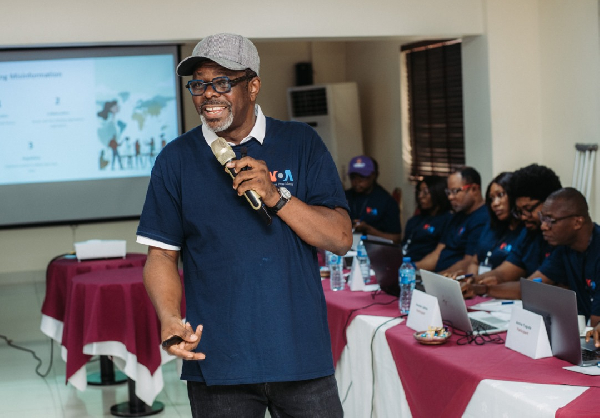Digital Economy And The Game Changers
Technological innovation has permeated almost all aspects of life on Earth in the 21st century. Entire economies and societies are evolving due to these changes. Nigeria stands as an epitome of digital progress within Africa, leading the continent’s charge into the future alongside new technological innovations. Moreover, there are potential opportunities to further enhance the economy, enhance the quality of governance, expand access to telecommunications infrastructure, and many more.
In Africa, Nigeria is fast becoming one of the largest digital economies driven by a burgeoning tech startup ecosystem, a youthful population, and rapid urbanization. Changes in the payment systems to mobile payments, the internet, AI and even block chain tech. Business reliance on other technologies is set to increase significantly due to their willingness to adapt to the fast growing global economy.
The advent of new fintech companies such as Paystack and Flutterwave has optimized the realm of digital payment to new bounds. They have enabled stransfer of funds between nations with much greater ease, making previously strenuous payments borderless. With these kinds of innovations in place businesses can now trade with one another regardless of the nation they reside in without issues.
AI and machine learning are also beginning to play a pivotal role in business analytics, helping companies to optimize operations, personalize customer experiences, and create new market opportunities. As Nigeria continues to nurture its digital economy, it is positioning itself as the continent’s tech leader, with the potential to drive Africa’s digital future.
Nigeria’s Digital Leap
The Nigerian government is increasingly leveraging technology to improve governance and public service delivery. Digital identity initiatives, such as the National Identity Management Commission (NIMC), are helping to provide millions of Nigerians with access to essential services like voting, healthcare, and social welfare. By digitizing public records and adopting blockchain for data security, Nigeria is making strides towards more transparent and accountable governance.
Nigeria is also exploring the potential of blockchain technology for transparent public sector management. For example, blockchain-backed systems could be used for secure land registries, ensuring that property ownership is verifiable and tamper-proof. In the coming years, innovations like these will make governance more accessible, reduce corruption, and foster trust in public institutions.
Powering Africa’s Connectivity Revolution
Nigeria’s telecommunications sector is the cornerstone of Africa’s digital transformation. With over 200 million mobile subscribers, the country is not only Africa’s largest telecom market but also one of the most rapidly growing. Telecom infrastructure is enabling a digital revolution across the continent, with Nigeria leading the way.
The rollout of 4G networks has already set the stage for the anticipated arrival of 5G, which promises to further accelerate the adoption of smart technologies like IoT, autonomous vehicles, and smart cities. These advancements will have a profound impact on industries such as healthcare, agriculture, and education.
Nigeria’s government is also driving investment into fiber-optic networks, aiming to expand internet access to underserved regions. By improving connectivity, Nigeria is ensuring that its digital economy will continue to grow, providing opportunities for innovation and job creation in rural areas.
Nigeria and Africa at the Forefront of the Future
Nigeria is not just adopting emerging technologies; it is actively shaping their development. From AI-powered agriculture to mobile health solutions, Nigeria is positioning itself as a hub for technological innovation in Africa.
One of the most exciting areas of development is the fintech sector, where Nigeria is leading the continent. Startups like Flutterwave, Chipper Cash, and Paga are not only transforming how Nigerians transact, but they are also expanding into other African countries and internationally, bringing African fintech to the global stage.
Nigeria is also embracing the power of the Internet of Things (IoT) and big data. For instance, smart farming solutions are helping Nigerian farmers increase yields by utilizing sensors and data analytics. With over 70% of the population employed in agriculture, these innovations are critical to improving food security and empowering smallholder farmers.
Meanwhile, in education and healthcare, Nigeria is pioneering the use of telemedicine and e-learning platforms to provide access to quality services in remote areas. The growth of these sectors will help bridge Africa’s infrastructure gaps and create a more equitable society.
Opportunities and Challenges for Nigeria and Africa
While Nigeria and Africa at large are witnessing unprecedented opportunities through digital innovation, challenges remain. The continent still faces issues such as inadequate infrastructure, a lack of skilled labor, and regulatory uncertainty. However, these hurdles present opportunities for growth and collaboration.
Nigeria’s youthful population—over 70% of Nigerians are under the age of 30—provides a vast talent pool for the growing tech sector. Governments, businesses, and educational institutions must focus on equipping the workforce with the necessary skills to thrive in a digital-first world.
Another significant challenge is the need for inclusive digital policies that ensure all citizens, including those in rural areas and marginalized communities, can access the benefits of the digital revolution. Governments and private enterprises must work together to close the digital divide and promote equitable access to technology.
Nigeria Leading Africa’s Digital Future
Nigeria stands at the forefront of Africa’s digital transformation, with its innovation ecosystem, evolving telecom infrastructure, and emerging technologies paving the way for a brighter, more inclusive future. As the continent’s largest economy and most populous nation, Nigeria is uniquely positioned to lead Africa’s digital revolution and inspire other nations to follow suit.
The key to success will lie in embracing change, fostering innovation, and ensuring that technological advances are harnessed for the greater good of society. With the right policies, investments, and collaborations, Nigeria and Africa can continue to be the game changers of the digital age.
* Aganbi, a Lagos-based ICT reporter and corporate communications specialist, writes via donpe[email protected]













